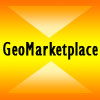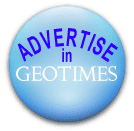|
A COMMENT ON ...
Education: Preparing Students for Geosciences of the Future
Cathryn A. Manduca, Heather Macdonald and Geoff Feiss
Students graduating from geosciences programs today can pursue a wide variety of careers. No matter where they go, they will encounter modern geoscience research that brings together traditional field observation and laboratory work with powerful new tools such as satellite-based remote sensing of Earth, computational modeling of complex systems and data visualization on all scales. Last year, geoscience faculty gathered together in a series of workshops to consider how to best prepare students for these opportunities.
The geosciences will play an important role in addressing the grand challenges facing humanity today. Exploding world populations compete for increasingly scarce natural resources; the prospect of climate change and the degradation of environmental systems cast doubt on the sustainability of our economic and social systems; and earth hazards threaten expanding population centers. We are increasingly called upon to predict and explain these threats and to recommend actions for their mitigation or elimination. To do so requires more robust connections to the life sciences, to computational science and to the realm of policymaking in addition to ongoing basic research to more completely understand Earth and our planetary system. Increasingly, we work in interdisciplinary teams using rapidly evolving tools and techniques to address these problems.
Two key principles for helping departments prepare students for this kind of science stand out from workshop discussions. First, they must learn how to study the integrated Earth and planetary systems. Understanding how geoscientists use data, models and a systems approach to study Earth is fundamental to the field. In addition, students need to understand how our science contributes to society and how it is poised to contribute in the future. Second, students must be prepared for a rapidly changing discipline. “Learning to learn” is a principle that lies at the heart of flexible preparation. Educational research emphasizes that a well-developed set of strategies for self-learning is critical to becoming an expert in a field. Helping students become skilled learners positions them well in a field where new ideas and techniques rapidly emerge.
Geoscience students face an amazing array of professional options, all of them important to the geosciences and to society. The department plays a critical role in helping students initiate their next career step, be it employment or graduate school. Four strategies that can help departments prepare students for the professional world emerged from our workshops.
First, we need to introduce students to the breadth of career opportunities available. There is a wide range of resources that can be used to introduce students to career options including career Web sites, visiting speaker programs and alumni panels.
Second, we need to bring courses and other departmental activities together in synergistic ways that support a diversity of career interests. Important professional preparation comes from a wide range of student experiences within the department including courses, field trips, leadership opportunities in clubs, real-world experiences and networking opportunities.
Third, we can help students learn to recognize and articulate the skills that they have mastered. A geoscience degree prepares students for a wide range of opportunities, usually a broader array than they have even considered. However, success in finding a rewarding opportunity requires that they know both where they want to go and what they can contribute.
Finally, we need to work with campus career centers. An open line of communication with the career center can ensure that they have information and materials to support their work with geoscience students.
The discussions described above are part of an effort to help geoscience departments stay strong in times of rapid change. While each department is unique, good information about the activities and strategies used by other departments across the country is valuable. The Building Strong Geoscience Departments Web site (serc.carleton.edu/departments) includes many of the key presentations from the workshops as well as examples of programs, courses and activities from geoscience departments in the United States and Canada.
Links:
serc.carleton.edu/departments

 Subscribe
Subscribe


